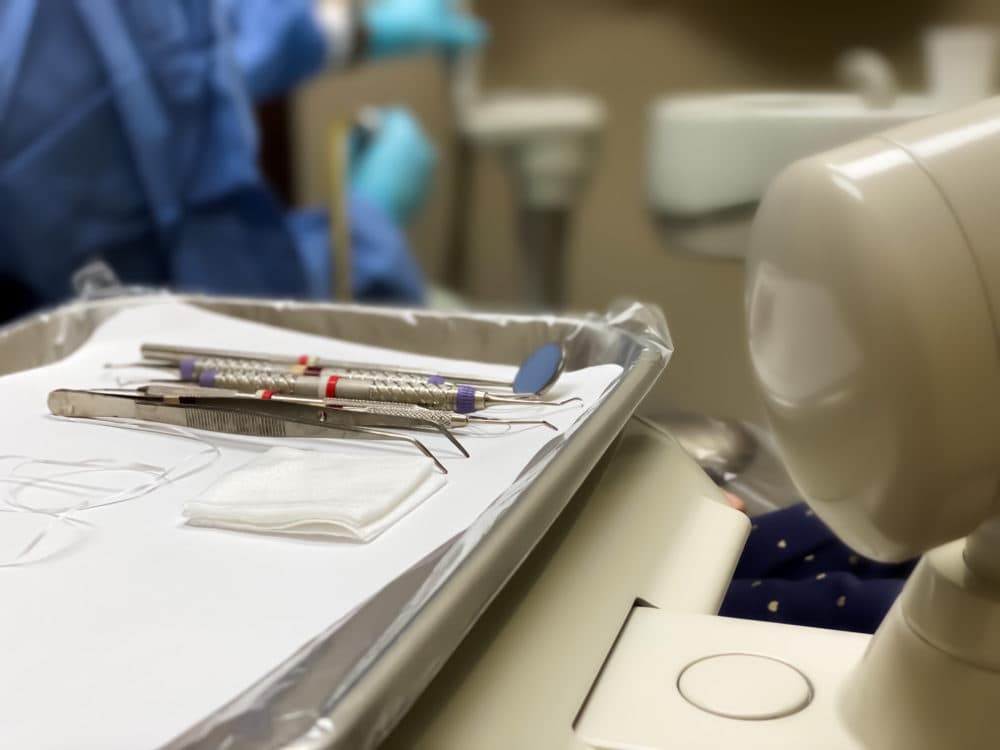Advertisement
Mass. voters approve ballot question to force dental insurers to adopt new spending rules

Dental insurance companies in Massachusetts will soon have to comply with new spending rules under a law approved by voters Tuesday. This is the first time a state has placed such spending limits on dental insurers, and advocates hope it will serve as a national model.
“It's a sea change moment,” said Chad Olson, director of state government affairs for the American Dental Association. “It is the possibility for dental insurance to look more like major medical plans and look more like real coverage.”
By a wide margin, Bay Staters voted to pass Question 2, according to an election call from the Associated Press. The ballot initiative will require dental insurers to spend at least 83% of customer premiums on patient care and initiatives aimed at improving the quality of care, rather than business expenses like overhead, marketing and executive salaries.
The new law is set to require insurance companies that don't reach that minimum percentage, known as a medical loss ratio, to issue rebates to their customers, beginning in 2024. Health insurance companies across the country are already subject to similar rules.
The measure also gives state regulators the power to block "unreasonable" premium price hikes and requires dental insurance companies to share more data on their spending, including how much they spend on care.
The ADA hopes this victory will lead other states to follow suit. “I can tell you that a number of states, more than a handful, have reached out to me,” said Olson, adding that the states fall on both sides of the political spectrum and are diverse geographically.
In Massachusetts, the technical and expensive ballot initiative pitted dentists against dental insurance companies, with both sides pouring millions of dollars into their respective campaigns.
The "Yes on 2" campaign — which was backed by dentists and spearheaded by Somerville-based orthodontist Mouhab Rizkallah — argued the measure would ensure that dental insurance companies invest in patient care and don't dip too deeply into premiums to fund executive salaries. They also said it would promote more accountability in an industry they argued lacks transparency.
“It's exciting that the Massachusetts public so overwhelmingly recognized the value of this,” said Andrew Tonelli, a dentist in North Reading and co-chair of the Massachusetts Dental Society's government affairs committee. Tonelli said he’s particularly eager for financial data dental insurers will be required to report. “I think the transparency piece of this is huge,” he said.
Opponents, including major dental insurers like Delta Dental, countered that the new rules could lead them to increase premiums and force smaller carriers out of the market, resulting in "thousands" of Massachusetts residents losing dental coverage. (Delta Dental is a financial sponsor of WBUR, which remains editorially independent.)
“While we are disappointed with the outcome of the election,we are committed to working with regulators, lawmakers and other stakeholders to protect families and businesses from the potential consequences of this ballot question that could lead to higher costs and less access to dental care,” the “No on 2” campaign said in a statement.
Independent policy experts have estimated the new law’s impact would be minimal for consumers.
While there's limited data on dental insurance spending, a study by a trade group representing dental insurance companies found that large carriers are already close to — albeit below — the 83% threshold proposed by the ballot measure. And an analysis by the The Center for State Policy Analysis at Tufts University predicted that the ballot measure, if passed, would likely cause dental costs to rise for consumers, but not by much.
“We expect price changes to be relatively manageable," Tufts' Evan Horowitz told WBUR's Gabrielle Emanuel last month. "I mean prices may increase a little bit, but nothing really dramatic.”
Editor's Note: This post has been updated with comments from the American Dental Association and the Massachusetts Dental Society.
This article was originally published on November 09, 2022.

